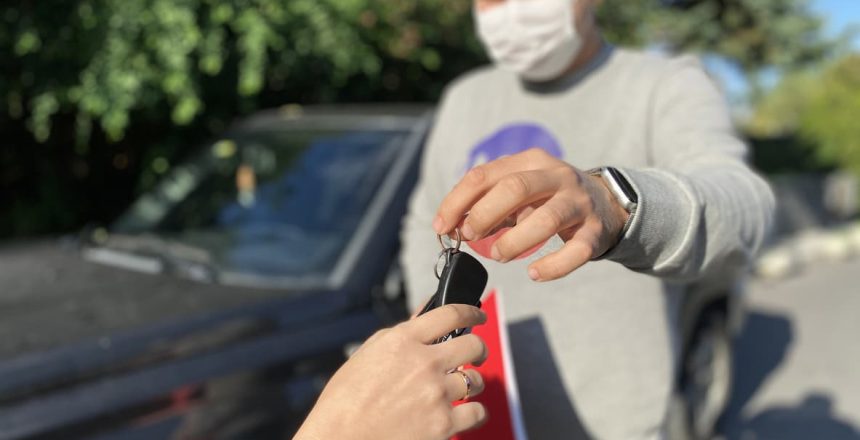Buying a used car comes with inherent risk, but there are some steps you can take to reduce these uncertainties while making a purchase.
For the most part, buying a used vehicle is a relatively straightforward process. You’ll often start by researching cars you’re interested in purchasing before finding sellers and inquiring with them. From there, you might set up a viewing or visit a few used car lots looking for the perfect match before finally making the purchase.
However, since you’re purchasing a product that someone else has already driven, there’s risk involved when buying a used vehicle. It’s vital that you protect yourself by doing your due diligence before handing any money over because you want this car to last you for years to come.
Here’s a look at some private car sales tips to make it less likely you end up with a lemon as you make this important transaction.
Key takeaways
- Privately buying a car is risky
- Being aware of potential scams can help
- Thoroughly checking the vehicle is a good idea
- A reputable car shipping carrier provides additional assistance
1. Check the vehicle’s history report
It’s advisable to check every car’s history report before you even see it in person. Organizations like Carfax, AutoFax, and AutoCheck allow you to view detailed information on the vehicle using its VIN, ensuring you have as much data as possible from the beginning.
Information on your history report will include accident data, service history, how previous owners used the vehicle, and how many people have owned it. All of this data comes in handy when valuing the car and determining if any prior damage or lack of service could be a dealbreaker.
If a seller won’t provide you with the VIN to conduct a vehicle history check, it’s a clear red flag that you should look elsewhere in your search.
2. Inspect for hidden damage
Of course, the damage will only show up on the history report if the owner took the vehicle to a licensed shop for repair. In some cases, sellers will attempt to cover up damage themselves before putting the car on the market and quickly trying to unload it.
Checking for hidden damage includes:
- Looking for spots where the paint colors don’t match.
- Pull back some carpet on the floor or trunk to search for new panels.
- Doing a quick visual assessment of the wheel alignment.
Water damage is another issue that sellers sometimes attempt to conceal. A musty smell in the vehicle is a clear indicator that water has been present. You might also notice corrosion on the wiring, water-stained carpets, or water markers elsewhere in the vehicle’s interior.
You might feel like you’re being too careful by thoroughly looking for potential damage, but you’ll thank yourself if you manage to avoid buying someone else’s problem.
3. Take it to a mechanic
Most reputable dealerships will recondition the vehicle before putting it on their lot, which usually includes a trip to the mechanic. They’ll probably provide you with a full report of the repairs the mechanic completed, too.
Private car sales usually don’t include this feature, so you’ll want to take the car to a mechanic before finalizing your purchase to ensure nothing is seriously wrong with the vehicle.
If a seller won’t allow you to take the vehicle to a technician, it’s a potential sign that something is wrong with it and that you should probably look elsewhere. At the very least, the lack of transparency should make you wonder about the character of the seller.
It’s worth noting that visiting a mechanic isn’t always a straightforward process, particularly if you’re purchasing the car in another state. In those situations, shipping the vehicle from the seller directly to a mechanic who can look it over before you drive it can alleviate some of your concerns.
You might also try to include a provision stating the finalization of the deal is dependent on the technician’s report on the vehicle’s condition. However, there’s no guarantee the seller will agree to that.
4. Be aware of warning signs
Some sellers seem sketchy from the get-go, while other scammers are a little more subtle with their actions. Therefore, it’s a good idea to learn about some warning signs that typically pop up during private car sales.
A seller who won’t give you their phone number and insists on conducting business via email shows something is amiss.
Another potential sign is a seller who won’t let you take the vehicle for a test drive or get it inspected by a mechanic. You’ll also want to check that the seller’s name matches the vehicle’s ownership papers. Also, you will have to check that you’re permitted to see the car’s service and maintenance records.
Remember, if a seller seems to be withholding information, it often means there’s something they don’t want you to see.
5. Pay using a safe method
Does the seller have a preferred method to receive payment? If so, make sure it’s a reputable way to send or receive funds.
From a buyer’s perspective, cash, a bank draft, or an ACH debit transaction are probably the safest ways to make this purchase, although you can also use online services like PayPal, Venmo, and Cash App.
However, some sellers insist on using an online escrow service that releases your money when both parties are satisfied. While this seems satisfactory on the surface, some escrow sites are fraudulent. This, therefore, provide a false sense of security regarding the transaction.
In short, only use a payment method you know is reputable. Also, never provide the seller with your banking information; they don’t need it to receive a payment.
Stay safe when buying a vehicle
Using common-sense is essential with private car sales because there’s a lot of money involved. Moreover, you want the vehicle you purchase to last you for a long time. By following these tips, you can protect yourself from potential scams. Thereby, making it more likely to end up with a suitable automobile to meet your needs.
If you end up needing to ship your vehicle after purchase or for an inspection, using a car shipping broker like Mercury Auto Transport ensures you end up with a reputable carrier. All vendors with access to our network are FMCSA licensed and insured, limiting your risk during the car transport. Contact Mercury Auto Transport today for a free quote.






